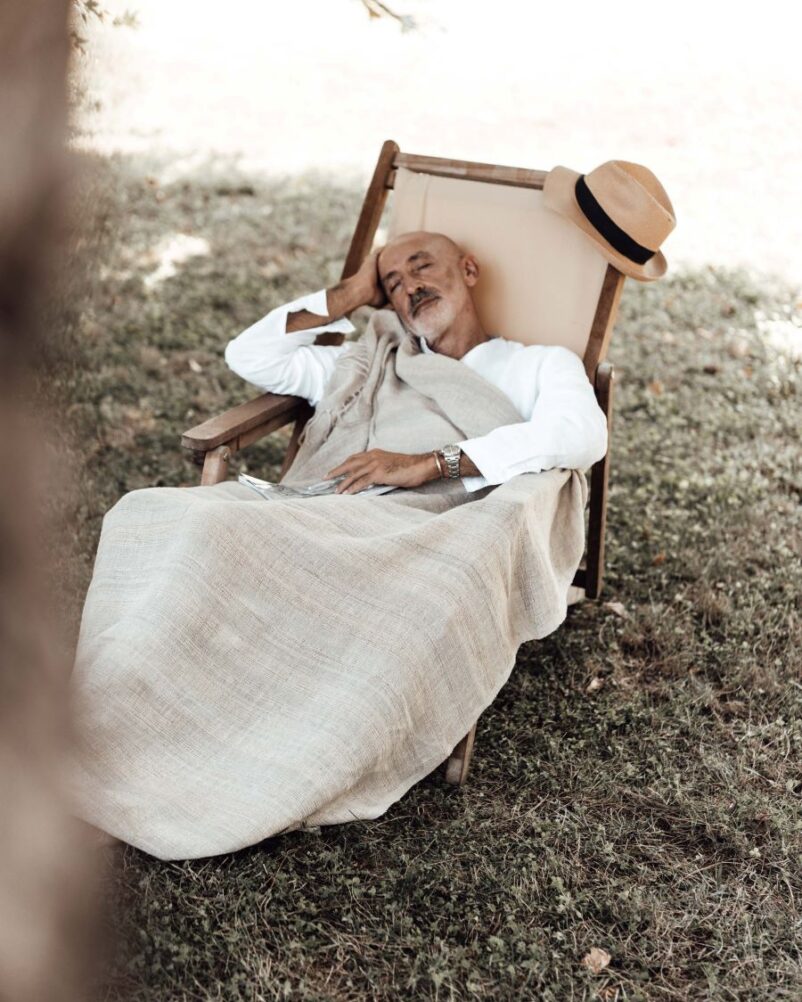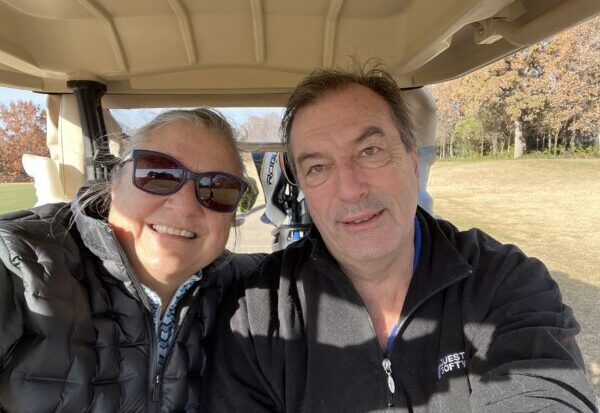
Retirement means a time for endless rounds of golf, afternoon naps, and leisurely strolls through the park. Or does it? In recent years, a surprising shift has taken place in the retirement focus landscape. At least for some.
More and more retirees are embracing the idea that their post-working years should be about more than just a relaxation focus; they want to continue making meaningful contributions to society even after leaving their careers behind. From volunteering at local nonprofits to mentoring young entrepreneurs, this new breed of retiree is rewriting the script on what it means to grow older gracefully while staying active and engaged in their communities.
Retirement Focus and Its Significance In Our Lives
Retirement may sound like the ultimate goal to strive for—years of leisure and relaxation after a lifetime of working hard. After all, many people have dreamt of having a retirement focus free from deadlines and any pressures whatsoever. But is retirement really just about kicking back and taking it easy? While relaxation is certainly a well-deserved part of retirement, the importance of having a renewed purpose and achievement can also be important.
When we retire, we’re essentially stepping away from our careers and the daily grind that comes with them. However, this doesn’t mean that we should stop being active or contributing to society. In fact, a new retirement focus can be an excellent opportunity to explore new hobbies, pursue passions that were put on hold during our working years, or even embark on a second career. By remaining productive in retirement, whether through volunteering, starting a small business, or engaging in lifelong learning pursuits, we can continue to find purpose and fulfillment.
Further, staying productive during retirement not only benefits us individually but also has positive effects on society as a whole. Older adults have a wealth of knowledge and experience to offer; by remaining engaged in various activities post-retirement, they can continue making meaningful contributions to their communities. Additionally, their continued participation in the workforce or other ventures helps boost productivity levels overall while strengthening intergenerational connections.
Viewing retirement focus as solely a time for relaxation might limit its true potential. By recognizing retirement as an opportunity for both recreation and continuing engagement with the world around us—that is when its significance truly shines through. However, it’s important to remember that this warm fuzzy of productivity and giving back isn’t a view shared by everyone. Many still feel they’ve given back their entire lives and now it’s time to kick back and chill. So, which view are you?
The Traditional Perception of Retirement: Relaxation
Contrary to popular belief, the traditional perception of retirement as a time for relaxation may be well overdue for a revision. While many see a retirement focus as the ideal opportunity to take it easy after years of hard work, this view fails to acknowledge the myriad of benefits that come from staying active and productive during our golden years.
In fact, research suggests that long periods of relaxation can often lead to feelings of restlessness and boredom in retirees. The newfound free time can quickly become overwhelming without structure or purpose. By engaging in activities that keep our minds and bodies active, we not only avoid these negative emotions but also enhance our overall well-being.
Staying productive during retirement does not necessarily mean remaining employed full-time or adhering to a strict work schedule. It offers an opportunity for individuals to explore their passions, pursue new hobbies or engage in volunteer work that aligns with their values.
An updated retirement focus could mean working part time somewhere a person always found interesting. By channeling their skills and expertise into meaningful endeavors, retirees can find fulfillment while still enjoying the leisurely aspects of retirement focus.
The Changing Mindset Toward Retirement Focus: Productivity
 As retirement approaches, many individuals are reevaluating their mindset of what they plan to do with this long craved for free time. Embracing productivity on some level as a retirement focus can be as simple as shifting the mindset from “must-do” lists to “want to do” activities.
As retirement approaches, many individuals are reevaluating their mindset of what they plan to do with this long craved for free time. Embracing productivity on some level as a retirement focus can be as simple as shifting the mindset from “must-do” lists to “want to do” activities.
This shift in retirement focus can be attributed to several factors. First, people are living longer and healthier lives than ever before. With increased longevity comes the desire for continued purpose and engagement. Secondly, the concept of retirement itself is evolving. Many individuals no longer see it as a complete cessation of work but rather as an opportunity to pursue new interests or make a difference in their communities.
In addition to personal fulfillment, incorporating productivity into a retirement focus can have significant positive effects on mental and physical well-being. Staying mentally active through challenging activities or pursuing new ventures can help combat cognitive decline or depression that often come with aging. Remaining physically active by engaging in hobbies such as walking, gardening, or joining fitness classes not only improves overall health but also provides social interaction opportunities.
Ultimately, the changing perspective toward productivity in retirement represents a shift away from viewing this period solely as a time to unwind. Instead, it encourages individuals to explore their passions and continue contributing to society in meaningful ways. By striking a balance between relaxation and productive pursuits, retirees can find increased satisfaction and ensure that their later years are both fulfilling and purpose-driven.
Benefits of Relaxation in Retirement
While many retirees may be tempted to fill their newfound free time with endless activities and commitments, there is immense value in embracing relaxation during retirement. The benefits of allowing oneself to unwind and recharge are numerous.
First, relaxation promotes physical well-being by reducing stress levels and lowering blood pressure. When we take the time to relax, our bodies are able to recover from the years of work-related stress that may have built up over time.
Additionally, relaxation supports mental health by providing an opportunity for reflection and personal growth. By taking a step back from the hustle and bustle of daily life, retirees can gain a fresh perspective on their past achievements and future aspirations.
Further, relaxation in retirement allows for increased creativity and inspiration. Taking regular breaks from active pursuits can actually enhance productivity when it comes time to engage in meaningful activities or hobbies. By giving our minds the space to wander and explore new ideas without constraints or expectations, we open ourselves up to innovative thinking that can lead to exciting discoveries or projects during this phase of life.
Fostering a relaxed mindset also enables retirees to truly appreciate simple pleasures and make the most of each day without feeling rushed or overwhelmed. Retirement offers a unique opportunity for individuals to savor moments they may have missed while balancing work-life obligations. Whether it’s enjoying leisurely walks in nature, reading a book under a shady tree or on the patio, or spending quality time with loved ones without distractions, adopting a laid-back approach allows retirees to find joy in every passing moment.
Benefits of Productivity as Retirement Focus
While relaxation as a key retirement is certainly an important part of years that come after a lifetime of hard work, there are also many benefits to maintaining a level of productivity during this phase of life. Engaging in productive activities can provide a sense of purpose and fulfillment, helping retirees to the mind active and sharp.
Studies have shown that engaging in mentally stimulating activities can help prevent cognitive decline and reduce the risk of developing conditions such as dementia. Staying mentally engaged without the urgency or frenzy to meet a deadline can contribute to overall brain health.
For individuals who have been super competitive and obsessed about success their entire lives, taking the compulsive work ethic routine down a few notches while still having productivity goals and milestones can be a positive transformation. Having time to decompress while avoiding going from one end of the over-scheduled work spectrum to the other can set the stage for a happier overall retirement focus.
Finding the Balance Between Relaxation and Productivity
Finding the retirement focus balance between relaxation and productivity can be a challenging task, particularly in retirement when time seems abundant. Many individuals who have spent their entire lives working may feel guilty for not being more productive during their golden years. However, it is important to remember that retirement should also be a time for rest and rejuvenation.
While productivity can bring a sense of accomplishment and purpose, excessive focus on it can lead to burnout and stress. Taking breaks and allowing yourself time to relax is crucial for maintaining mental, emotional, and physical well-being. It is essential to listen to your body’s cues and give yourself permission to slow down when needed. On the other hand, dedicating too much time to relaxation could also hinder personal growth and fulfillment in retirement.
Ultimately, finding the right balance requires introspection and self-awareness. Reflect on what truly brings you joy and fulfillment during this phase of life. Remember that neither extreme – constant busyness nor complete idleness – is likely to bring lasting contentment. Embrace a lifestyle that combines productive activities with moments of relaxation; one that prioritizes your well-being while still pushing you toward personal growth goals.
Couples and the Retirement Focus Debate: When Expectations Clash
After decades of working and often raising a family, it’s understandable that some individuals may want nothing more than to take it easy in their golden years. However, what happens when one half of a couple desires relaxation while the other wants to continue being productive? This divergence in retirement goals can be a source of tension and require compromise.
For the partner seeking relaxation, it’s important to understand that their desire for productivity doesn’t necessarily mean they are dissatisfied with their life or relationship. Some individuals thrive on staying active and engaged, finding fulfillment in pursuing new projects or hobbies. It may be helpful for couples to have an open conversation about goals and expectations for retirement, so they can find a balance between restful moments and fulfilling pursuits.
Alternatively, couples could consider finding common ground where both relaxation and productivity can coexist. Engaging in activities together that offer both leisure and personal growth may be beneficial for each partner individually as well as nurturing their bond as a couple. Whether it’s taking up a shared hobby like antiquing or pickleball or starting a small business together, finding ways to merge these differing interests can bring renewed excitement into retirement while still allowing each person to pursue their respective passions.
Finding harmony between relaxation and productivity is essential for couples navigating retirement. By acknowledging each other’s desires, open communication, and discovering common ground where both partners can feel fulfilled, couples are more likely to create a retirement journey that satisfies them both individually as well as strengthens
By embracing personalization in retirement planning, individuals can experience a sense of purpose and fulfillment during this exciting phase of life.
Rather than settling for the traditional notion of relaxation or feeling pressure to be continuously productive, retirees can design their own path as an individual (whether a solo ager or part of a couple) that combines both elements in equilibrium. Ultimately, by listening to their inner desires and crafting an intentional retirement plan based on individual goals and aspirations, people can make the most of this well-deserved chapter while enjoying all the benefits it has to offer.
After all, it’s time to debunk tired stereotypes and myths about aging, and put yourself in control of your own retirement narrative.
Rick and I: The Ying and Yang of Retirement Focus
My husband Rick is truly one of the hardest working and most giving individuals I know. He would climb mountains to make sure his family and I are taken care of and happy. As such, having worked hard in his IT career for his entire life, he truly dreams of the retirement in the stereotypical way: sleeping in, getting in a round of golf, and having absolutely nothing on his “honey-do” list. And that’s okay.

However, I’m the opposite. My mind is a constant whirl of things I can think to do, to experience, to see, or to produce. Starting this blog Senior Denial is an example of my go-go-go mindset. And that’s okay too.
Are we at a crossroads? No. Will we ever have friction on being a retirement focus house divided? Perhaps, but nothing that can’t be worked out. While he craves sleeping in, I’m an absolute early bird. I love having alone time in the morning without the demands of others assigning how I start my day. I enjoy my leisurely cups of coffee and the inner peace from sitting on the back patio.
So, that’s a win-win for us both. We both love to travel, and will do so several times a year. We just returned from a big adventure and are already talking about what’s next. In between those times, once he really hits the “retirement ready” button and stops working, he’ll set his sights on improving his game of golf and I’ll be all too happy to play with him (my skills are much more limited, however). And that’s okay as well.
The biggest friction I think we’ll have? Eating. He’s a three meals a day sort of guy, where I’m more of a eat when I want type of gal. After raising three kids, I’m tired of thinking what the next meal will be. But, healthy eating and changing eating styles as a retiree is for another day and another blog. And, somehow, I think we’ll work through that as well!
And even though we have an opposite retirement focus in relaxation or productivity, I can’t think of anyone I’d rather share my golden years with!
Written by
Robin McClure
Robin is the author of 7 parenting books and has 3 grown children, 3 spoiled rescue dogs, and a very understanding husband. She holds a bachelor's degree in journalism and a master's degree in communications, and spends her time writing, drinking coffee, and planning the next grand adventure.



